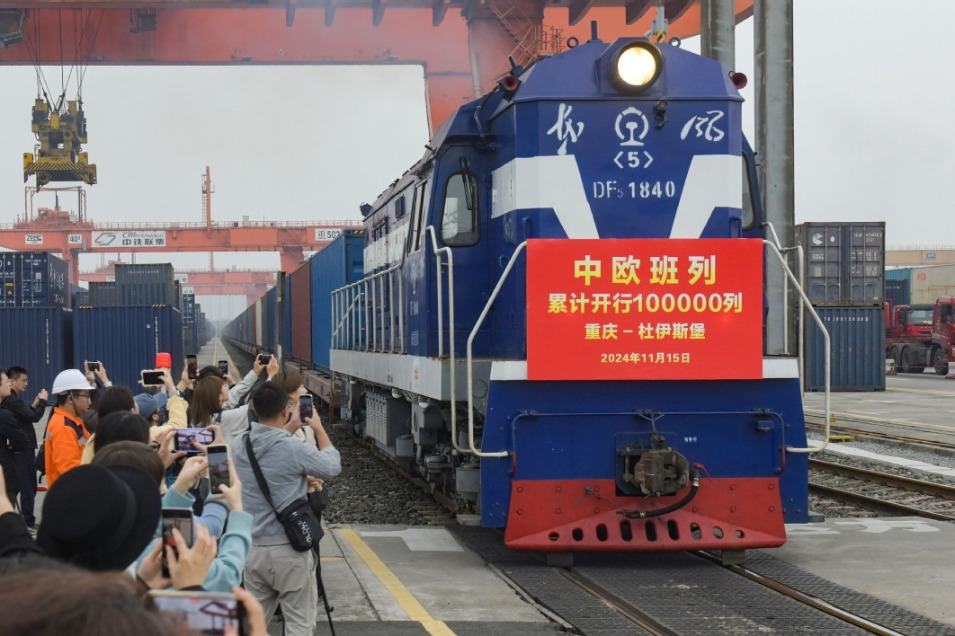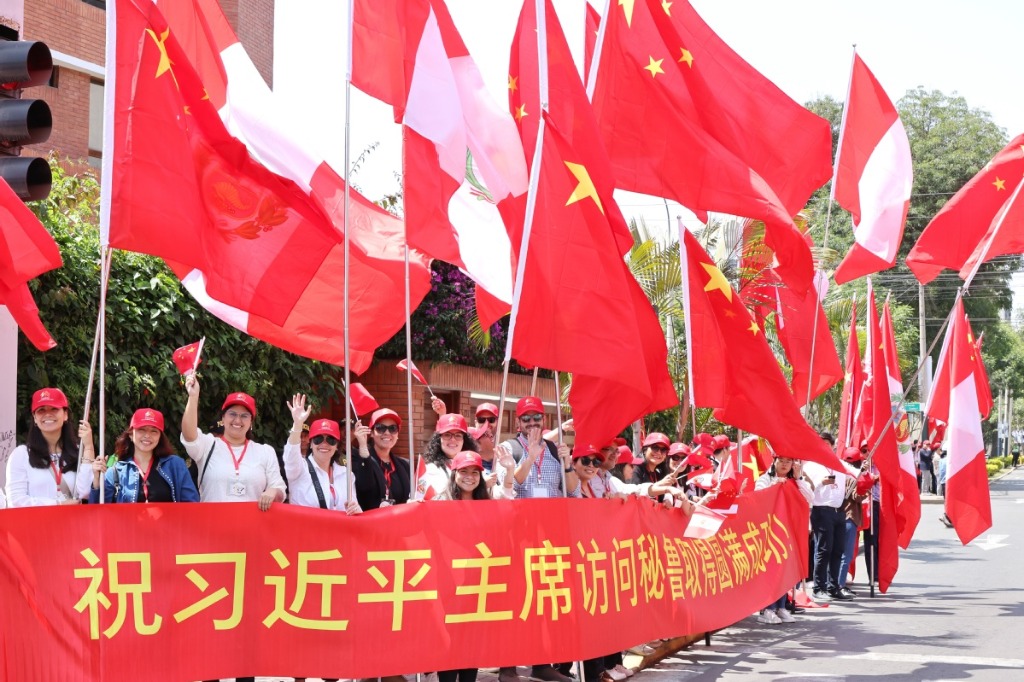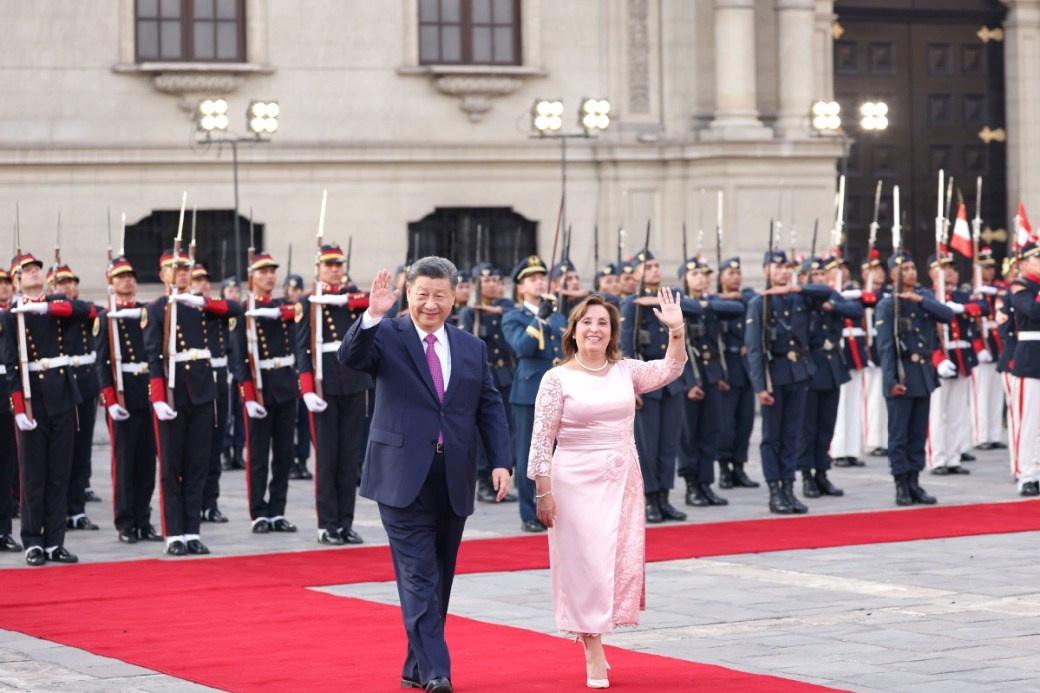Chinese path to modernization: The Way forward
By Qaiser Nawab | chinadaily.com.cn | Updated: 2023-02-23 08:50

China's modernization journey is a unique one, and its leaders are dedicated to ensuring that it stays on track. Xi Jinping, general secretary of the Communist Party of China Central Committee, recently emphasized the need to advance reform and innovation to keep forging new growth drivers and strengths and fully invigorate social creativity.
Speaking at a study session at the Party School of the CPC Central Committee, Xi discussed that the Chinese path to modernization is not just about achieving a higher level of efficiency than that offered by the capitalist system but also about effectively maintaining a higher degree of social equity, providing 1.4 billion people a prosperous and dignified life, which is an important contribution to world development as well.
This study session was attended by some of the highest-ranking officials in China, including members of the Standing Committee of the Political Bureau of the CPC Central Committee, newly elected members and alternate members of the CPC Central Committee, as well as principal officials at the provincial and ministerial levels. Xi emphasized that the path to modernization in China is the modernization of common prosperity for all. The theory of the Chinese path to modernization marked a major theoretical innovation and was the latest significant achievement of scientific socialism.
In his report to the 20th CPC National Congress in October 2022, Xi proposed and elaborated on the Chinese path to modernization. He reviewed the nation's efforts to attain rejuvenation in the modern era, including the Party's efforts in leading the establishment of the People's Republic of China, conducting reform and opening-up, and making historic breakthroughs to become the world's second-largest economy.
Xi's often-quoted verse, "The country is the people, and the people are the country," vividly embodies the CPC's people-centered governance concept. The CPC makes it plain that prosperity for everyone is a prerequisite for socialism and that inequality is undesirable. To ensure that no one was left behind, China waged and won a protracted war against poverty, an unmatched feat in human history.
China's historic achievements in eliminating absolute poverty and building a moderately prosperous society in all respects provided further institutional guarantees and more solid material foundations and ensured more proactive efforts in achieving Chinese-style modernization. Xi pointed out that only with the Party's leadership can the Chinese path to modernization see bright prospects and prosperity. He also reaffirmed Beijing's pledge to keep expanding high-level opening-up, deepen participation in the global division of labor and cooperation, and better utilize domestic and international resources.
The material and cultural-ethical advancements that make up modernization are the means through which China will reach its goal of modernization. A significant component of modernization is the development of material goods. It paves the way for China to develop a great modern socialist country in all aspects. The Chinese route to modernization seeks to integrate material and spiritual civilizations, with humanism and humane concern as its foundation.
However, Xi also warned of various predictable and unpredictable risks and challenges ahead, and stressed the need to be more mindful of potential dangers, stay prepared to respond to challenges, and always have the courage and capacity to fight.
The general secretary also pointed out that the nation's great achievements in terms of rapid economic growth and social stability since the founding of the People’s Republic of China, and especially since the start of reform and opening-up, proved that the Chinese path to modernization is the only correct way toward national rejuvenation. This pathway breaks the myth that modernization equals Westernization and displays a different vision for modernization, expanding the choices for developing countries in their modernization journey.
Advancing the Chinese path to modernization is a systemic project requiring coordination, systematic planning, and a holistic approach. In terms of its top-level design, insights into the general trends of global development and an accurate understanding of the common aspirations of the people are essential. Xi reiterated the need to coordinate development and security and said that the nation must pursue a holistic approach to national security, improve its national security system, and enhance its capacities.
China will uphold independence, self-reliance, and strength, and remain committed to development based on its own strengths, and maintain a firm grasp on the future of its development and progress. Meanwhile, it will also continue to expand high-level opening-up, deepen participation in the global division of labor and cooperation, and better utilize domestic and international resources.
In conclusion, the Chinese path to modernization is a journey that the nation's leaders are committed to advancing. Xi has outlined the way forward, emphasizing the need to coordinate, plan systematically, and approach the process holistically. The theory of the Chinese path to modernization marks a major theoretical innovation and is a testament to China's journey toward modernization. Despite the various predictable and unpredictable risks and challenges ahead, China remains committed to its modernization journey and is ready to face any challenge that comes its way. Chinese modernization provides humanity with an alternative path to modernization. The CPC and the Chinese people have been offering humanity more Chinese insight, better Chinese input, and stronger Chinese might to assist in resolving its common issues and have made new and bigger contributions to the noble cause of human peace and development.
The author is a highly esteemed international expert on the Belt and Road Initiative (BRI), Middle East, Central Asia, and Africa.
The opinions expressed here are those of the writer and do not necessarily represent the views of China Daily and China Daily website.
If you have a specific expertise, or would like to share your thought about our stories, then send us your writings at opinion@chinadaily.com.cn, and comment@chinadaily.com.cn.
























